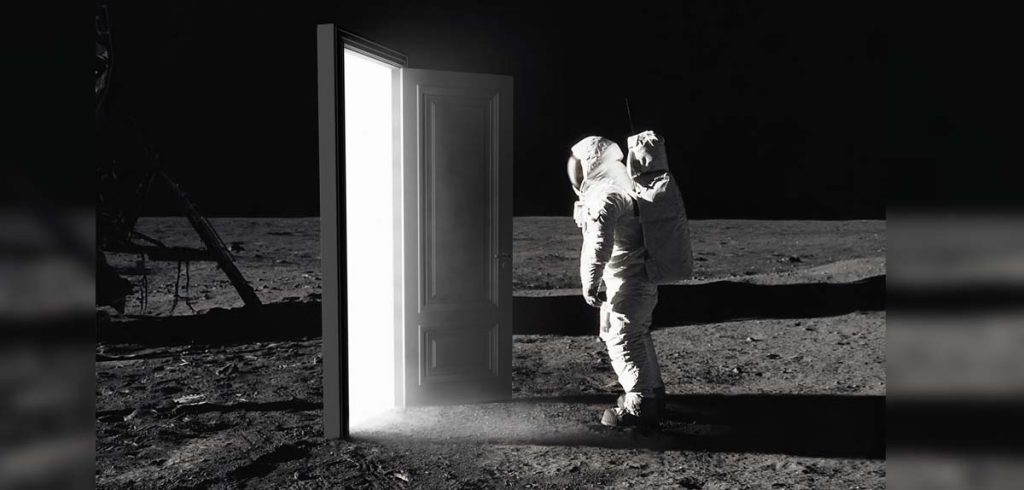The spokespersons who took part of this issue of
the ProEspacio Magazine were Pedro Navarro, PP
deputy for Zaragoza, GPP spokesman for Science
and Innovation of the Congress of Deputies; and Javier
Cendón, Science spokesman of the Socialist Party in the
Congress of Deputies. This time around, Podemos and
Vox did not respond to our invitation.
We find ourselves in a key moment when it comes
to fostering the space industry, both nationally and
internationally, with a special focus on the development
of the Spanish Space Agency. The space sector is
experiencing an exciting moment with high-potential,
long-term programs, and this is why we must seize this
opportunity to benefit our industry and have a leading
role as a country.
As a result, the plans of any future government are
essential to our industry and will serve as the compass
that steers its development.
What will your party’s position be in relation
to the advancement of space activities in Spain?
Are you considering proposals to foster the
consolidation of the National Industry and
guarantee the technological sovereignty and
competitiveness of Europe?
As per the Aerospace
Security Strategy roadmap
and considering the degree of
development of our corporate
and government structure,
the advancement of space
activities should focus, in
addition to strictly the creation
of a regulatory framework
that facilitates the inclusion
of the private sector through
public-private partnership
processes with sights on a
national regulation; in other
words, unique, as its nature
requires. This statement,
which may seem obvious, is
a reference to the attempts
to create a regulation and/
or agency that is particular
to a specific Autonomous
Community, which is pointless.
Does your party consider space as a strategic
sector and that the investments in that sector are
beneficial to society?
As an R&D intensive sector
that leads to a high degree
of technology transfer to
other sectors, it is a strategic
sector for our economy, to
which we must add that
its jobs are of high quality,
with a level of university
graduates that exceeds 90%.
The aeronautical sector, in
addition, exports 53%, and
space over 65%.
Will you continue with spain’s commitment of
increasing its esa contribution until it reaches the
level that corresponds to our gdp?
As a prerequisite, we believe it is
fundamental to audit the Aerospace
PERTE (Spain’s Strategic Projects for
Economic Recovery and Transformation).
It is essential for transparency criteria
to be applied to its management,
especially in light of the criticism brought
forward in November of 2021 by the
report on the sector’s multi-national
corporations which literally stated that
there exists a “lack of coordination and
leadership among public institutions in
the management of European funds.”
We must help strengthen what is
already a strong industrial capacity in
the Spanish sector as one of the main
private suppliers of ESA, with the goal of
fostering private investment.
What will be the commitment of your party with
the spanish space agency to generate high level
national programs?
After what has been a senseless
process of disputes between the
different territories to choose its
headquarters, the first efforts must
focus on brining it online, overcoming
the hurdles that the personnel selection
processes are facing.
Will you build international collaborations,
with a budget for bilateral programs to work
with other space agencies such as NASA?
What will your party’s position be in relation
to the advancement of space activities in Spain?
Are you considering proposals to foster the
consolidation of the National Industry and
guarantee the technological sovereignty and
competitiveness of Europe?
At PSOE we have a firm commitment to
science and innovation in our country, as proven
throughout these years in the administration, with
a budget allocation to science and innovation
that is unprecedented in the history of Spain.
And also, to the space sector and all the
activities that are part of the value chain of a
sector that is strategic for our country, with
great potential for our economy and our society.
One example of our clear commitment was the
modernization of the Law of Science, Innovation
and Technology, where we introduced
something that has been asked for years: the
creation of the Spanish Space Agency.
The Space Agency project is underway and
this commitment of the Spanish Government
with the sector is already showing results in
terms of industrial framework and employment.
For example, we used to have the capacity to
complete the cycle of design and manufacture
of an aircraft, but we were still unable to
complete the cycle of satellites, which is why
among the challenges of the Aerospace
PERTE, the development of a launch vehicle
was included. Right now we are already in the
project design phase with two major Spanish
companies as part of this first stage. Once the
project is completed, we would become the first
European country to have our own technology
to perform a launch.
Because of this, for this next term, at PSOE we
have great challenges that we need to face:
First, continuing the fulfillment and execution of
the Aerospace PERTE, which seeks to turn our
country’s aerospace industry into a key player in
the face of the new challenges and opportunities
that come with the great transformations
planned for the sector, where space is one of its
main pillars.
Second, enacting a Law of Space, which will
perform operations and develop applications
in the celestial domain that will have an effect
on the wellbeing and autonomy of our society.
With this new framework we would position our
country in an even more favorable place for
advancing the space industry and attracting
foreign investment.
President of Government Pedro Sánchez has
embraced this sector as a true national project,
stating the importance of addressing its needs
with sights on positioning Spain as a European
power within the space sector.
Does your party consider space as a strategic
sector and that the investments in that sector are
beneficial to society?
The aerospace sector has an impact
on our lives every day. Every one of
us use some 200 satellites each day
through GPS, radio, television, weather
apps, etc. The aerospace sector
provides us with information about the
things that are taking place on Earth
so that we make decisions and save
lives, as was the case with the La Palma
volcano eruption.
It also helps us prevent
fires and fight the consequences of
climate change. It helps us be a better
and more prepared Spain.
The Spanish Space Agency will also
have the goal of bringing space closer to
the citizenry. Because of this, it will have
a Space and Society Office dedicated
to fostering the work interests of young
people, especially women. We want to
convey to the citizens the impact space
has on our day to day.
Will you continue with spain’s commitment of
increasing its esa contribution until it reaches the
level that corresponds to our gdp?
Hemos aumentado nuestra contribución a la Agencia un 20% en los Presupuestos Generales para 2023, hasta los 300 millones de euros. Y, por tanto, desde 2019 la hemos incrementado un 50%, situándonos como el cuarto país en la Unión Europea en contribución a la Agencia.
This means that, since 2019, we have
increased it by 50%, making us the
fourth highest-contributing country of
ESA in the European Union.
It is important to point out that
this contribution includes a return
coefficient that returns opportunities
to our country and our industry.
Thanks to this, we have succeeded in
putting Spain in a leadership position
in the ARRAKIHS program, with a
budget of approximately 200 million
euros the first ESA mission to be
led by Spain. We have also managed
to help our companies take part
of major projects across the globe,
as is the case of the GMV Spanish
company, which has been awarded
a navigation related Australian
contract. And, after 30 years, we have
two new Spanish astronauts in ESA:
Sara and Pablo. All of this is thanks to
our contribution to ESA.
What will be the commitment of your party with
the spanish space agency to generate high level
national programs?
The Spanish Space Agency is
already up and running thanks to
this government. For more than
20 years, this country pursued the
goal of having a space agency, and
had been unsuccessful until now.
Creating a state agency usually
takes years, and in this case, it has
been a matter of months.
It is a
milestone for our country to count
with this Space Agency that, from
Seville, will represent us before the
rest of the world and contribute
to generating a new sustainable
prosperity in all regions of Spain.
The Ruling Council of the Spanish
Space Agency is composed of
representatives from several
ministries. This broad interministerial
composition of the
Agency stems from the crosscutting
nature of the activities
and services we offer in the
realm of space, which involve
different fields such as security,
defense, Earth observation,
meteorology, geopositioning and
communications.
The Agency will
unify all of these space policies and
effectively coordinate all of these
services and activities in order to
guarantee the strategic actions
of the Government of Spain in
the realm of space. The Spanish
Space Agency will be responsible
for managing a volume of projects
equivalent to a budget of around
700 million euros per year.
At the Agency, we will execute
important projects for the
development of space technology,
which is fundamental in the
preservation and protection of
the planet, defense, security and
communications. This Agency
will also act as a liaison with both
the European Space Agency and
the rest of the space agencies, such as NASA.
In addition, it will
become a nexus for public-private
partnerships, supporting the
existing space sector and fostering
the creation of new companies
in the realm of space across the
entire Spanish territory. With this,
the government aims to make
sure that not a single bit of talent
in our country goes to waste,
which will be managed by the
agency.
We therefore aspire to
continue on this path, without
taking one step back in this shift
of production model that has
given such great results for our
economy in today’s crisis context.
Will you build international collaborations,
with a budget for bilateral programs to work
with other space agencies such as NASA?
This is already happening right
now. Last May, Spain joined the
Artemis program of NASA and
other agencies, such as the European
Space Agency, Japan Aerospace
Exploration Agency and the
Canadian Space Agency, to return
to the moon and prepare for a
future crewed trip to Mars. A few
days ago we signed a MoU with
Switzerland which, among other
things, intends to foster collaboration
in the space sector. Therefore,
at PSOE we believe it is paramount
to work closely with other international
agencies in different space
cooperation projects and focus
on expanding the scientific and
technological cooperation.
This is
the reason why we are committed
to having our own Spanish Space
Agency that has a long-term vision
and continues growing our importance
in the international landscape,
which is something that Spain
is so far accomplishing.
Through the Presidency of the
EU Council, multilateral collaboration
in the space sector will be
strengthened. In Seville, during
Space Week from November 6 to
10, among other things, a top-level
meeting will be held between the
European Union and Ibero-American
countries.
Its goal is to tighten
the bonds between Ibero American
and European regions as a
strategic goal for the space sector,
which surely will bring new bilateral
projects to our country.







